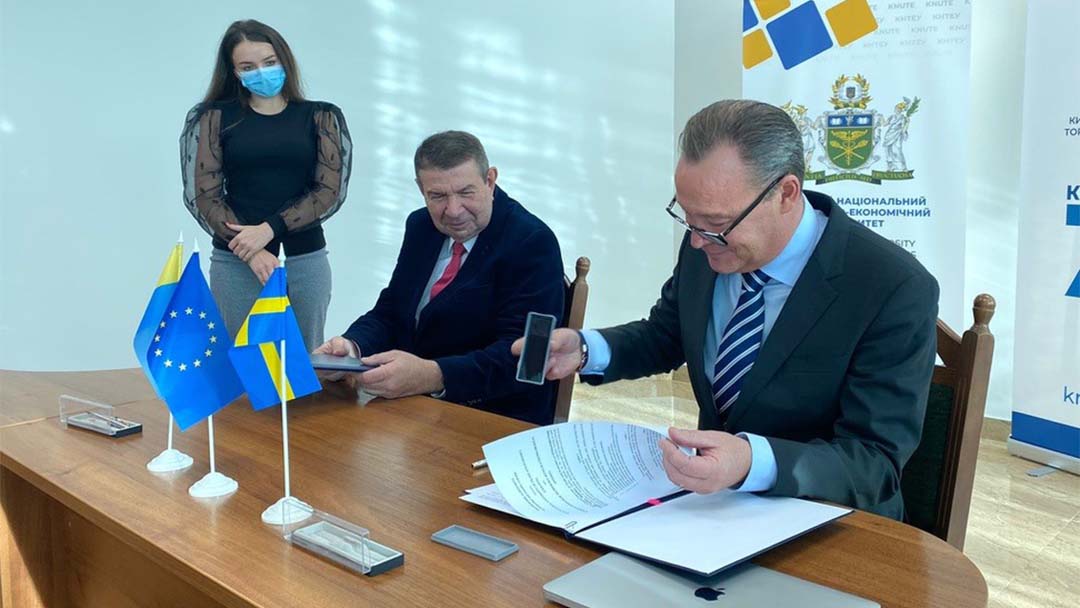Mikael on a new collaboration agreement

Head of School Mikael Lindström writes about a new collaboration agreement between the CBH School and Kyiv National University of Trade and Economics (KNUTE) and a plan to streamline the recruitment process for faculty positions.
On Monday, the CBH School signed a cooperation agreement with the Kyiv National University of Trade and Economics (KNUTE). The goal is to expand the academic contacts in food technology between higher education institutions in Ukraine and Sweden.
Sustainable food technology is a global societal challenge for health and the environment with:
- A large global environmental footprint: greenhouse gas emissions (26%), land use (50%), freshwater use (70%).
- Major impact on public health: malnutrition and chronic diseases.
Ukraine has a large arable land with fertile land and different climate zones that enable a wide range of agricultural production and traditions of sustainable agricultural production. In Sweden, the food sector is the third largest industry. The degree of innovation is relatively low, which is also the case in Ukraine.
With our cooperation, we hope to improve this. In the operational plan for 2022, there is an assignment to the CBH School to coordinate food technology within KTH, and there the collaboration agreement with KNUTE is another piece of the puzzle.
On Wednesday, CBH's management team met for the first time physically in over 1.5 years and the agenda included a discussion with the dean about the recruitment process for faculty positions. Many of us feel that it needs to be speeded up and concretely it is a challenge to get experts to accept assignments that takes up a large part of the time. The CBH School will have the opportunity to test a pilot where a group at the school makes a pre-assessment of the applications, to reduce these to 10-15 in cases where we have many applications. These are then sent for external review and with this we hope that we can speed up this part of the process.
Mikael